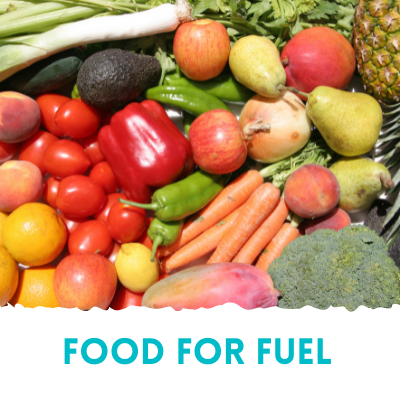[vc_row][vc_column][vc_single_image image=”15995″ img_size=”full” alignment=”center” onclick=”custom_link” img_link_target=”_blank” link=”https://croi.ie/tc-events/2022-croi-corrib-charity-cycle/”][/vc_column][/vc_row][vc_row][vc_column][vc_column_text]The countdown is on until the Croí Corrib Charity Cycle on June 12th! Fuelling for your cycle is of utmost importance so we have some tips from our Croí Dietitian, Aisling Harris, below.
Eating well for physical activity and sport can have many benefits including:
- Allowing you to perform well in your chosen sport or activity;
- Reducing the risk of injury and illness;
- Ensuring the best recovery after exercise or a training programme.
A healthy diet for sport and exercise should contain plenty of starchy foods, plenty of fruit and vegetables, some protein foods and some dairy foods. It is also very important to stay hydrated.
Carbohydrates
The main role of carbohydrates is to provide energy.
When they are digested, carbohydrates are broken down into glucose to provide readily available energy for the body to use quickly and effectively. Carbohydrates are the most important form of fuel for exercise and sports activities. Starchy foods are an important source of carbohydrates in our diet. Starchy foods, especially high fibre varieties, provide a slower release of energy and take longer to digest so it’s a good idea to include some in every meal. Wholegrain varieties also provide fibre, which is important for digestive health, and a range of vitamins and minerals including B vitamins, iron, calcium and folate. We store small amounts of carbohydrates as glycogen in our muscles but use this use up during exercise. Therefore, it is important to replenish your glycogen stores after your workout so that your levels are topped up for your next session. Try to have a source of carbohydrates with your main meals. Additionally, high carbohydrate snacks such as a slice of bread with jam, a cereal bar or a banana and yoghurt are good snacks to have before or during a long training session.
Good sources of carbohydrates in the diet include:
- Wholegrain bread
- Breakfast cereals and porridge oats
- Pasta and noodles
- Rice
- Couscous
- Potatoes (with skins) and other starchy vegetables, e.g. sweetcorn
- Beans and pulses
Protein
Protein is also important for health and physical activity. The main role of protein in the body is for growth, repair and maintenance of body cells and tissues, such as muscle.
Different foods contain different amounts and different combinations of amino acids (the building blocks of proteins). Essential amino acids are those that the body cannot make itself and so are needed from the diet. The full range of essential amino acids needed by the body (high protein quality) is found in:
- Animal sources – meat, fish, eggs, milk, cheese and yoghurt.
- Plant sources – beans, pulses, soy, tofu, and plant-based meat alternatives
- Most vegans get enough protein from their diets, but it is important to consume a variety of plant proteins to ensure enough essential amino acids are included.
- Consuming a healthy, varied, diet containing nutrient-dense foods will ensure you get enough protein without the use of protein supplements or special high-protein eating strategies, even if your needs are a little higher. Try and spread your protein intake throughout the day.
Fat
Fat is an essential nutrient for the body but it is also a rich source of energy. Fats in foods typically contain a mixture of saturated and unsaturated fatty acids but choosing foods which contain higher amounts of unsaturated fat and less saturated fat is preferable. Most of us eat too much saturated fat so to cut back on intake limit foods such as:
- Pastries, cakes and puddings
- Chocolate and biscuits
- Some savoury snacks
- Cream, coconut cream and ice-cream
- Butter, lard, ghee, suet, palm oil and coconut oil
- Processed meats like sausages, ham, burgers and fatty cuts of meat
- Fried foods including fried chips
Replacing saturated fat with some monounsaturated and polyunsaturated fat helps to maintain healthy cholesterol levels. Good sources of these fats include vegetable oils such as olive, rapeseed and sunflower oils, avocados, nuts and seeds and oily fish, e.g. mackerel, salmon and sardines.
How to stay well hydrated
Sufficient fluid intake is essential for exercise and optimum recovery. Exercising causes the body to get warmer so the body tries to cool down by sweating. This causes the loss of water and salts through the skin.
The amount an individual sweats varies from person to person and depends on:
- Intensity and duration – longer and higher intensity exercise can cause greater sweat loss
- Environmental temperature – in hot, humid conditions sweat loss can increase
- Clothing – the more clothing that is worn, the quicker you are likely to heat up which may cause greater sweat loss
- Genetics – some people are just more likely to sweat than others
Generally, the more a person sweats, the more they will need to drink.
Small water losses are not harmful. However, dehydration can cause tiredness and hinder performance by reducing strength and aerobic capacity (especially in longer duration exercise), as well as having a negative effect on any further exercise sessions. Try and stay hydrated before, during and after exercise to prevent dehydration – water is generally best but sports drinks can be useful in certain situations, particularly long exercise sessions or sessions where you will sweat a lot as these drinks will help replace electrolytes lost in sweat. Always practice your nutrition and hydration strategy during your training sessions as opposed to race day to see how your body adapts.
Content adapted from the British Nutrition Foundation
[/vc_column_text][/vc_column][/vc_row]
